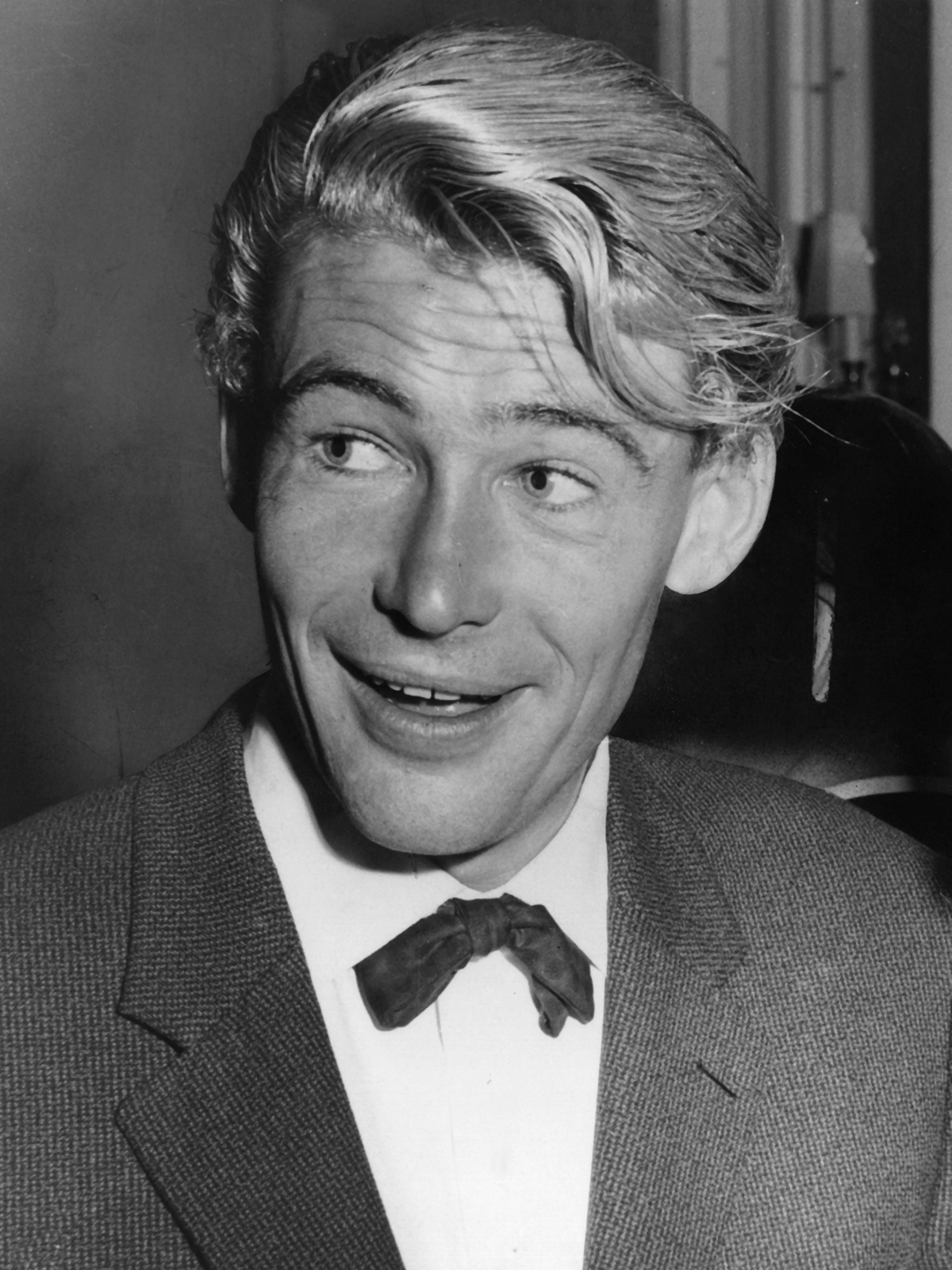
- Golden Globe Awards
Tomorrow’s Stars Yesterday: Peter O’Toole, 1963
Between 1948 and 1983 Golden Globes were awarded in a special category of “New Star of the Year” conceived to recognize young actors making a mark in their early roles. In this series, the HFPA’s Phil Berk highlights those that would follow their auspicious starts with distinguished careers.
In 1963 the Hollywood Foreign Press had the luxury of naming three New Stars of the Year: Peter O’Toole, Omar Sharif, and Terence Stamp, all of whom became instant superstars and prevailed for the next 40 years.
Each is worthy of a separate tribute, so let’s start with Peter O’Toole.
What an actor! That voice! And what a career! Although a season with the Royal Shakespeare company had earned him rave notices, his early screen roles were trifling – does anyone remember him in Aldo Ray’s The Day They Robbed the Bank of England – but then legendary Hollywood producer Sam Spiegel offered him the role of a lifetime (which required him to get a nose job) but after Lawrence of ArabiaIronically, a future New Star of the Year Albert FinneyWhat’s New Pussycat and The Night of the Generals, neither of which served him well, but on loan to other studios, he was king the hill.
Becket, in which he co-starred with his friend Richard Burton, was a Golden Globe Best Picture award winner, and it earned him the first of his three Golden Globe acting honors. He followed that with Richard Brooks’Lord Jim. But then he was absolutely irresistible playing opposite Audrey HepburnWilliam Wyler’sHow to Steal a Million.
Here was an actor as adept in comedy as in drama.
He joined John Huston’sThe Bible: In the Beginning, in which he played an Angel (not exactly type casting) but came roaring back, giving Katharine HepburnThe Lion in Winter, for which they switched acting honors, she won the Oscar and he the Golden Globe. The film itself was once again the Golden Globe Best Picture, Drama winner.
His follow-up film, Great Catherine, was an unmitigated disaster (was it ever released?) but then he scored a major triumph playing Scrooge in the musical version of Goodbye, Mr. ChipsAnother little-seen film Brotherly Love followed (didn’t he know better than use run-of-the-mill directors?) but even with a respected one like Peter Yates, Murphy’s War he came a cropper, to use an English idiom. He joined Burton again, and his famous wife Elizabeth Taylor, to bring Dylan Thomas to the masses with Under Milk Wood, which did all three proud. And then he was glorious in The Ruling Class, which he also produced.
At a much later HFPA press conference (for Troy thirty years later) when asked about this delicious film, he revealed that it was “made for very little money, in seven weeks, and everybody in it was a friend of mine. We all went off to that crazy house and we just enjoyed ourselves for seven weeks. Yes, it’s a strong favorite of mine. But every leading actor in it is now dead. I’m the only one alive, thank you very much.” Regardless, it’s an absolute treasure, which he followed with what many considered his absolute nadir, Man of La Mancha, a much-anticipated film version of the beloved stage musical. When it opened it was mauled by the critics, and he got the worst of the mauling. Yet there is undeniable integrity to his interpretation of the role, and his emaciated appearance, which audiences detested, remains true to Cervantes. The real problem with the film is the dubbing. The studio used a ghastly British singing voice, true to character maybe, but no match for the glorious tones of Richard Kiley, the original Man of LaMancha.
It took five years for him to live this down. In the interim he replaced Robert MitchumOtto Preminger’sRosebud, he played Robinson Crusoe in a revisionist Man Friday, he lent his talent to a misbegotten The Far Side of Paradise (no relation to F. Scott Fitzgerald), fared slightly better with Power Play, and finally took the money and ran with the execrable Caligula.
Back in Hollywood, he was at his best in The Stunt ManMy Favorite YearFor the next decade, he appeared in no less than 42 film and television projects, most of which are best forgotten. The one exception, Ridley Scott’sTroy. By adding him to the young cast of Troy, he brought class to the Hollywood spectacle. Suddenly he was energized, and once again absolutely marvelous in VenusHe jokingly called himself the Academy’s biggest loser amassing a record eight nominations and no wins. When the Academy, in 2002, presented him with an honorary Oscar, his distaff counterpart Meryl StreepAlthough infirm towards the end, he continued to work for the next ten years and finally succumbed at 83. Despite some forgettable films, he leaves an imperious legacy, one classic film Lawrence of Arabia, and six other classic performances in Becket, The Lion in Winter, Goodbye, Mr. Chips, The Stunt Man, The Ruling Class, and
Ironically, although he won countless awards for his work on the London stage, his best film work was done in Hollywood. Even Lawrence of Arabia is a Hollywood production.

